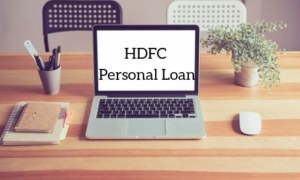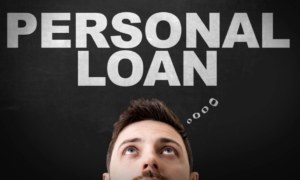Debt plagues about 80% of the American population, with consumer debt rising to over $14 trillion.
Most of these people manage more than one type of loan, having to contend with mortgages, student loans, personal loans, title loans, payday loans, and credit card loans. If you happen to be one among this lot, you may be wondering, should you use a personal loan for debt consolidation?
About 43% of credit card holders have as much as $15,000 or more in debt in the US alone. Only about 52% of consumers with more than $6,000 in credit card debt have consolidated their loans. Some of these people cited their reasons for not consolidating were fear of hurting their credit score.
Learn more: 7 Reasons to Get a Personal loan for Medical Emergencies
Others claimed it was fear of getting scammed or the process seeming like too much work. To help you make an informed decision, we’ll explore all aspects of consolidating your debts with a personal loan.
Read on to find out whether you’ll be doing yourself a favor or digging yourself deeper into the hole.
Should You Consolidate Debt?
Are there times you want to avoid calls wondering if it’s a creditor on the other end? Are you worried that your credit score is taking a plunge, barring you from future loans? At times, managing debts feels like trying to drain water from a leaking boat: An endless process.
Managing multiple loans from several different lenders with different interest rates, due dates, and minimum payments is not an easy feat. Missing just one of the payments could have dire consequences. This makes rolling all these debts into one single payment a very attractive option.
How to: Save Yourself From Credit Card debt
This is what debt consolidation does. You see, when you take out a debt consolidation loan, you get enough funds to pay for all your outstanding bills. You streamline those payments into one single monthly installment.
When Should You Use a Personal Loan to Pay Off Debt?
According to recent studies, debt consolidation is the number one reason why most people take out personal loans.
Additionally, debt consolidation loans happened to be the largest dollar loans requested. Much more significant compared to other loans to cover things like emergencies, weddings, home renovations, vacations, and the like.
So when should you consider taking out a personal loan for debt consolidation?
One of the best reasons why personal loans are great to pay off debt is that they come with fixed interest rates and fixed repayment terms. Typically the repayment plans run from 12 to 60 months.
Moreover, applying and qualifying for a personal loan is far simpler than other types of loans. Also, depending on your current credit score, you may qualify for an unsecured personal loan.
A secured personal loan means that you would be giving the creditor an item of value as collateral. This will still be a good case if you do have a sure way of paying off the personal loan and can avoid losing your asset to the creditor.
For debt consolidation, the amount of money you apply for should be equal to your outstanding debts.
However, whether this is a good idea really depends on several factors. Let’s dig a little bit deeper to find out what these factors are and whether you would qualify.
You Have Significant Credit Card Debts
Credit card debts are the most prevalent in America, with over 191 million citizens owning credit cards. The average credit card holder has about four credit cards, and the average household credit card debt leans over $5000. Now, personal loans have minimum borrowing limits, which are usually something from $1000 to $5000.
If you don’t have much credit card debt, taking out such a loan may not be worth your while, because you may end up paying too much interest. However, if you do have significant credit card debt, taking out a personal loan for debt consolidation would be a good idea. It may also be worth it if you have several other types of loans weighing you down.
You Can Afford To Pay the New Loan
Debt consolidation does not necessarily mean debt settlement or wiping off your debts. It means that you’ll still have to pay what you owe, only with one single monthly installment and a single interest rate. Debt consolidation only simplifies and streamlines your payments.
With this in mind, you should know that it’ll only work if you can afford to pay off the new loan. You have to do debt consolidation calculations and figure out whether the monthly payments will fit into your budget. If so, then taking out a personal loan for debt consolidation will work in your favor.
There’s a Chance the Loan Will Improve Your Financial Status
When you consolidate your debt, the main purpose is to make the payments more affordable. The agenda is to ease the burden of having to pay multiple loans with multiple repayment terms and different interest rates. That said, you have to weigh all factors in deciding whether this would actually improve your financial situation.
For instance, you may find that consolidating your debts will leave you with a longer repayment plan. This means that you will be able to make smaller monthly payments, but for a longer time.
If you do the math, you may find that in the end, you will have paid much more money than you would with your current interest rates. As you search for the best personal loans for debt consolidation, make sure you understand all the pros and cons of personal loans for debt consolidation.
You Have Good Credit Score
Your credit card score will play a significant role in your personal loan application process. Most personal loan lenders give borrowers with good credit scores low-interest rates. If you have a good credit score, which is at least 670, then you have a very good chance of getting very low interest rates on your personal loan.
Read more: How to survive and improve despite credit score issues?
This would essentially make it easier for you to make payments every month. If, on the other hand, you have a low credit score, chances are you’re going to get very high interest rates. There’s also a chance that the lender will want collateral.
Is Consolidating Debt a Smart Move?
Technically, there’s no good answer to this question, because it could be a yes and a no. In most situations, debt consolidation is a good idea, whether through a personal loan or otherwise. However, there are other situations when it’s not a great move.
For instance, if you don’t change how you manage money, chances are you’re going to find yourself back into that again. Moreover, consolidating debt usually puts you in a long time payment period.
If you want to pay off your loans quickly, it may not be a good idea. If you don’t have a budget that allows you to make monthly payments, you’re likely going to have to deal with fees and penalties all over again.
When looking for a personal loan for debt consolidation, make sure you have a solid plan in place on how you’re going to pay off the loan. Ensure you have moderate debt that you can pay off in several years. Let’s take a look at the pros and cons of a personal loan for debt consolidation.
Read more: Why High CIBIL Score Does Not Guarantee personal loan?
The Pros of Taking a Personal Loan for Debt Consolidation
One of the most significant benefits of taking a personal loan for debt consolidation is getting lower monthly payments. You’ll also have fewer debts to make every month, reducing the number of creditors you have to deal with.
Additionally, you get a fixed monthly payment with fixed interest rates and fixed end date. Even better, you will get a chance to improve your credit score by increasing your available credit.
The Cons of Taking Out a Personal Loan for Debt Consolidation
On the downside, if your credit score has already suffered, you may find it hard to qualify for a personal loan with a low-interest rate. Additionally, you will have to pay upfront fees, such as prepayment penalties and loan origination fees.
Even worse, debt consolidation encourages more spending because it doesn’t get to the root of the problem. Once you consolidate your debt, you may feel like a weight has been lifted off your shoulder and start racking up new debt. This will leave you in the very same position you are right now, or worse.
How To Consolidate Debt With a Personal Loan
Once you’ve decided that you want to take out a personal loan to consolidate your debt, it’s time to do some research. Getting a personal loan for debt consolidation is quite easy if you have a good credit score. This is the first place you should start before you go looking for a personal loan for debt consolidation.
Know more: How You Can Check Your personal loan Eligibility
Check your credit through your credit card company and review your credit report from all credit bureaus. From here, find out how much money you need to borrow to consolidate all your debts. Then, research the best personal loans for debt consolidation in your area by comparing several personal loan lenders.
When you choose a professional lender, such as Plenti, gather all the necessary documentation and formally apply for your personal loan. Once approved, review the loan agreement to make sure that the terms are agreeable.
Once you receive the funds, pay off all your outstanding debts, and start making your monthly installments based on agreed terms.
Getting a Personal Loan for Debt Consolidation: A Guide
Now that you know whether getting a personal loan for debt consolidation is a good idea, you can make an informed decision. If you decide to go ahead with it, ensure you get the best lender and the best possible terms.
Beyond that, please check out our blog for more informative content.






Leave a comment